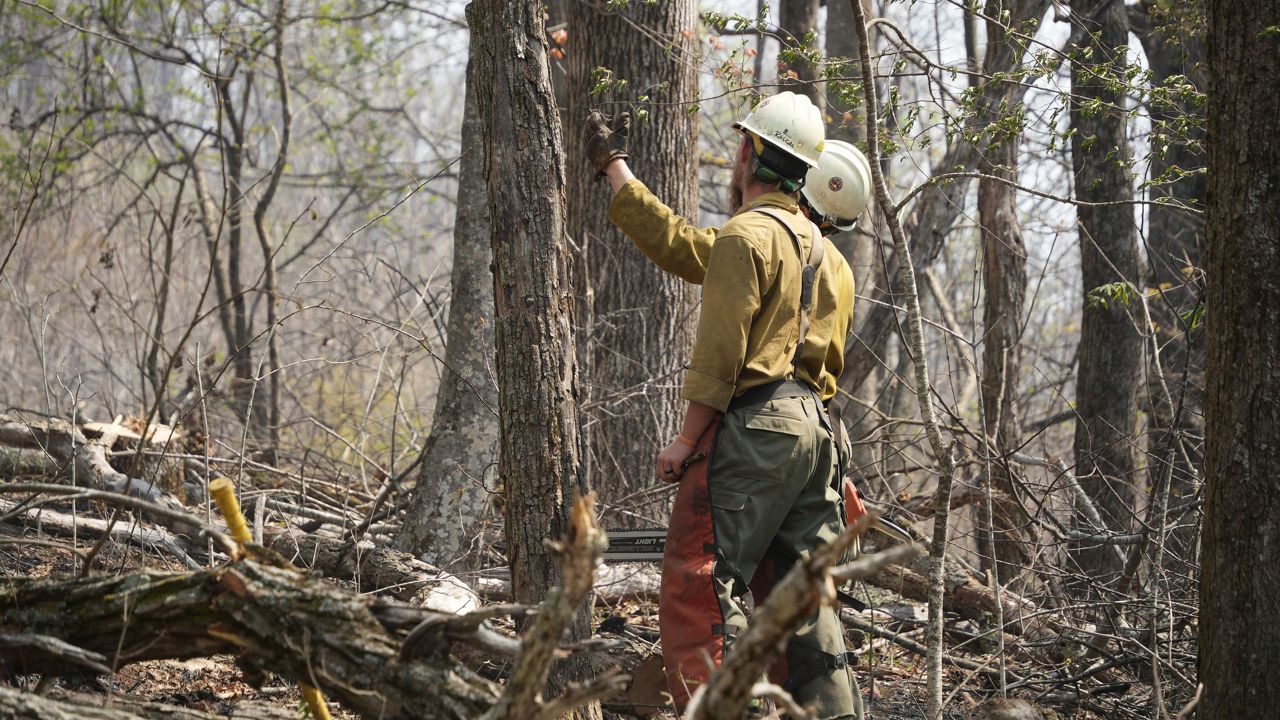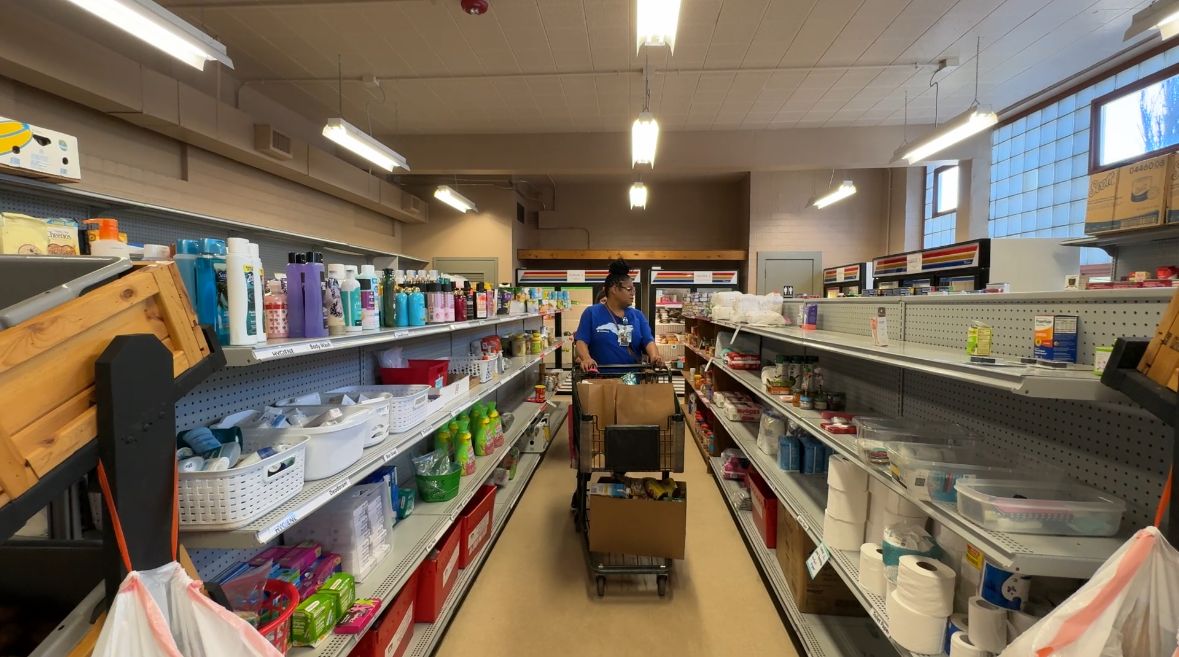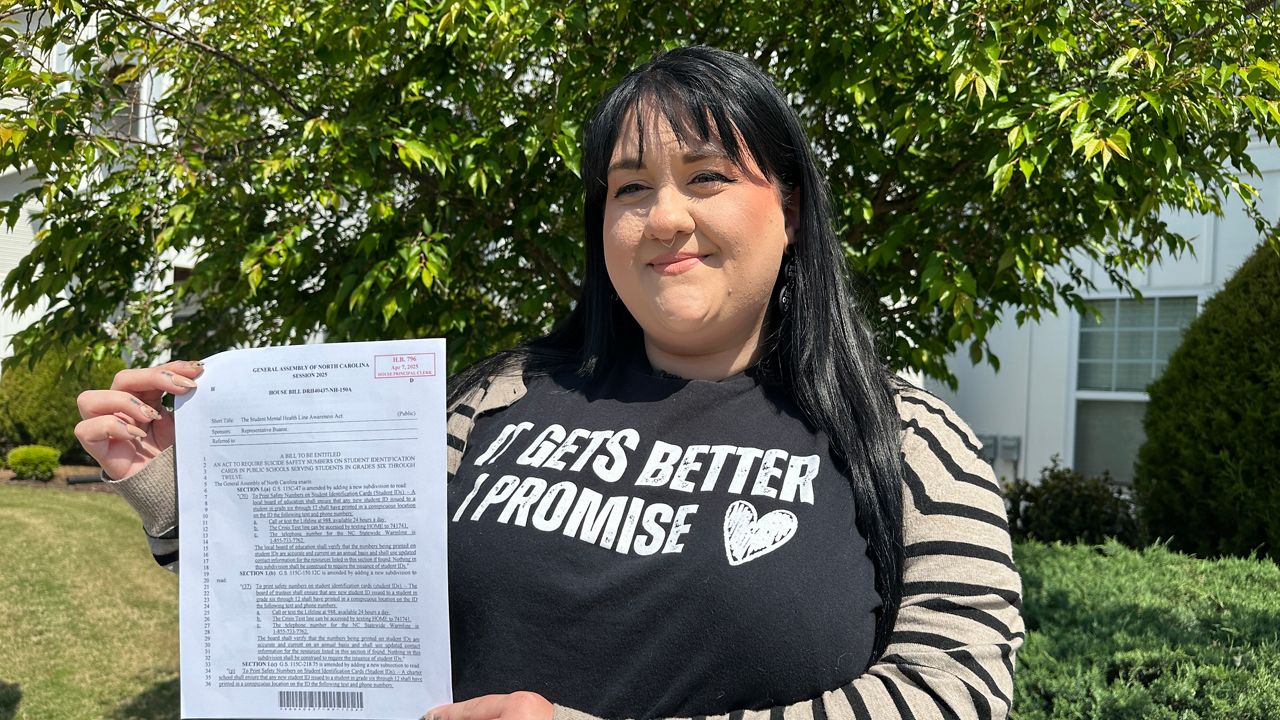ASHEVILLE, N.C. — A Helene-related survey in western North Carolina was not conducted following federal cuts earlier this week.
Buncombe County had been working for four months on the Centers for Disease Control and Prevention’s Community Assessment for Public Health Emergency Response (CASPER). The CASPER Survey is a type of rapid needs assessment used nationwide oftentimes after large-scale events or disasters, including the water crisis in Flint, Michigan.
Buncombe County Government Communications Manager Stacey Wood said crews from the state, county and the CDC planned to conduct the survey in rural and urban areas of the county Wednesday and Thursday.
“Public Health leadership knew that they wanted to implement the survey, because we really needed to get our arms wrapped around the scope of what our community was dealing with health wise,” Wood said. “Public Health leadership knew that they wanted to implement the survey, because we really needed to get our arms wrapped around the scope of what our community was dealing with health wise,” Wood said.
However, Tuesday, Buncombe County learned the staff providing support and expertise to conduct the survey were no longer employed.
“We acknowledge that it's an unfortunate development and is a setback to our our ability to get that point in time understanding of what the rural health issues are in our community, but public health is good at pivoting and being resourceful, and so we'll continue to pivot,” Wood said.
The survey included questions about evacuation, air quality and mold, health effects, health care access, observed environmental impacts, private well and water needs, septic systems and mental health.
Western North Carolina Community Health Services has seen some of the health effects after Helene.
The community health center, which is partially funded through the federal government, has locations in Buncombe and McDowell counties and serves more than 14,000 patients every year.
“We have uninsured, underinsured. We have immigrant population, so a vast majority of our patients are going to come from underserved communities,” WNCCHS Chief Medical Officer Dr. Carmen Robinson said.
Robinson said after Helene some of their patients moved out of state because they lost their home or have not been at the doctor as often as before.
“For the ones that weren't able to get their their routine follow up, we see some of the downstream effects of uncontrolled diabetes or uncontrolled high blood pressure so more emergency room visits or hospitalizations for heart attack or stroke or kidney disease,” Robinson said.
In addition, Robinson said mental health, chronic disease management, prevention and necessary screenings are also some of the issues the providers are trying to address.
“Behavioral health needs are really probably in the top three, especially our kids, our adolescents. We see the same thing in our adult patient population. In addition to behavioral health needs of our adults, we see things like uncontrolled diabetes or high blood pressure that needs to be brought down,” Robinson said.
She added they have been trying to connect with their patients as much as possible.
“Our population health team has been around the clock doing our outreach to our patient population, our attributed patient population, to see ‘Hey, are you still here? We see that you haven't been seen in six months, nine months, a year. Are you still in town? Do you need to get primary care in the state where you moved to? If not, we really do need to see you. It's important that you get your care,’” Robinson said.
Wood anticipates public health leadership will use some variation of the survey and design an outreach plan to gather information about the needs of the community. This information, she said, will help with their planning efforts as the community continues to recover from Helene.
The community in which the CASPER survey is going to be implemented picks the questions based on their concerns.
This was the first time Buncombe County was going to use this tool. However, in North Carolina as a whole, the CASPER survey has been used 31 times since 2001, especially in relation to hurricanes.












